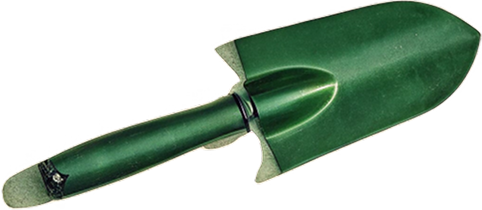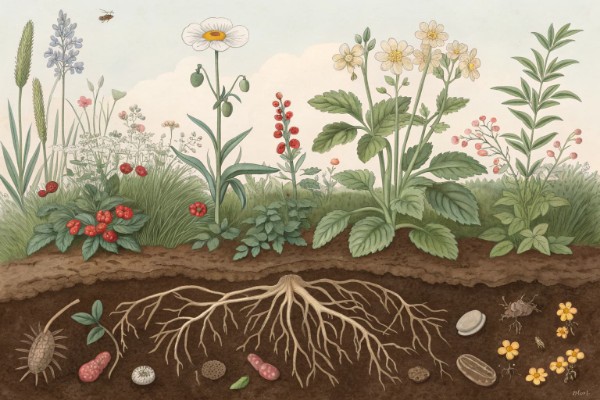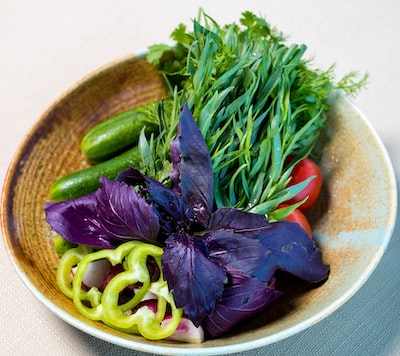Pesticides: Growing Healthy Crops With a Gentler Approach

Pesticides
Want abundant crops with fewer pesticides? Rotate your plantings yearly, welcome beneficial insects, and pick crop varieties known to resist pests naturally—these simple actions slash pesticide reliance. Reducing chemical pesticides boosts soil health and strengthens plants in a garden that sustains itself, tastes better, and makes your effort actually count. Ready for thriving produce grown smarter?
Cheatsheet: Gentler Pest Control for Bountiful Harvests
🌱 Health & Nutrition
30% fewer pesticide residues found in produce using soft approaches. Less exposure means fresher flavor and higher nutrient retention. Self-sufficiency grows with soil and pollinator health.
🕵️♂️ Monitor First
- Scout crops 1-2x per week
- Look for eggs, larvae, chewed leaves, wilting
- Encourage beneficial insects (ladybugs, lacewings)
🐞 Integrated Pest Management (IPM)
- Choose naturally resistant crop varieties
- Rotate crops yearly
- Use row covers (April–July, 40–90°F/4–32°C)
- Apply compost for strong, disease-resistant plants
- Remove infested leaves by hand
- Introduce companion plants: marigolds, basil, nasturtium
🧴 Gentler Pesticide Options
- Neem oil spray: 2 tbsp/30mL per 1 gal/4L water, apply weekly
- Insecticidal soap: Use at sunset, avoid bees
- Diatomaceous earth: Dust soil, reapply after rain
- Homemade garlic/chili spray: Deterrent for aphids & mites
🧰 Tools and Products You'll Need
- Spray bottle or garden sprayer (1 gal/4L)
- Protective gloves & mask
- Hand pruners
- Row covers/floating fabric
- Yellow sticky traps
✅ Pro Tips
- Spray early morning or evening for less pollinator impact
- Alternate methods to prevent resistance
- Document outbreaks and treatments in a garden log
- Always follow label safety instructions
Choose Resistant Varieties for a Solid Start
I learned early on that the varieties you choose make the biggest difference when cutting back on pesticides. Years ago, after battling aphids endlessly, I switched to aphid-resistant kale and lettuce—suddenly, pest problems plummeted.
Picking resistant strains can dramatically shrink your dependence on sprays.
Companion Planting: Your Garden's Natural Defense
The simplest solutions sometimes hide in plain sight. Enter companion planting.
Planting onions between rows of carrots repelled carrot flies better than any spray I ever concocted. Aromatic herbs like basil, mint, and oregano deter pests around tomatoes and peppers too.
- Marigolds repel aphids and beetles.
- Chives discourage Japanese beetles and carrot flies.
- Nasturtiums attract aphids away from valuable crops.
Encourage Beneficial Insects and Pollinators
Forget chemical warfare and recruit nature’s own pest control: ladybugs, lacewings, and praying mantises. I built an insect habitat with flowering dill, fennel, and cosmos to attract these garden predators.
"Introducing beneficial insects can reduce pesticide use by up to 80%, according to multiple agricultural studies."
Less spraying, more relaxing in the garden chair—everyone wins.
Rotate Crops to Outwit Persistent Pests
Pests enjoy predictability. Surprise them with crop rotation.
Every season, I relocate brassicas, nightshades, and root vegetables around my garden beds, a simple rotation schedule that disrupts pest life cycles and significantly reduces pesticide reliance.
Keep Soil Healthy for Stronger Plants
An overlooked but powerful way to reduce pesticide use is improving soil health. Compost, cover crops, and organic matter fortify plant immunity and vigor.
After a year of adding compost regularly, my squash plants fended off powdery mildew better than ever before.
Explore Physical and DIY Solutions
Sometimes we gardeners forget the simplest tools: physical barriers, traps, and homemade remedies.
- Floating row covers saved my broccoli from cabbage moths.
- Beer traps significantly reduced slug populations overnight.
- A simple soap-water spray took care of annoying aphids.
These low-tech strategies dramatically lowered my pesticide usage, offering effective relief without harmful side effects.
Accept Imperfection and Embrace Balance
Gardening naturally means understanding that crops may sometimes show imperfections.
I remember first embracing holes in lettuce leaves as badges of honor—proof of a thriving ecosystem. Less spraying equals healthier soil, cleaner harvests, and a garden truly filled with life.

Want smarter plant choices? 🪴
Frequently Asked Questions About Reducing Pesticide Use in Gardening
What natural alternatives effectively replace chemical pesticides in the garden?
Gardeners can adopt natural methods like beneficial insects (ladybugs, lacewings, praying mantises), botanical solutions (neem oil, garlic spray), and insecticidal soaps as effective replacements for chemical pesticides. These approaches carefully target specific pests without harming beneficial organisms or the environment.
How does companion planting reduce the need for pesticides?
Companion planting places complementary plant varieties close together, utilizing their natural pest-repelling properties. For instance, planting marigolds near tomatoes deters aphids, nematodes, and other pests, reducing reliance on synthetic pesticide solutions.
What steps can gardeners take to encourage beneficial insects?
Create habitats by planting varied flowering species that attract beneficial insects, such as dill, fennel, yarrow, and lavender. Additionally, offering sheltered habitats—like dense shrubs or insect hotels—helps maintain beneficial insect populations that reduce pest issues naturally.
Are crop rotation strategies effective in lowering pesticide usage?
Yes, crop rotation interrupts pest life cycles by regularly changing the plant species in specific areas, preventing pest populations from becoming established. Rotating vegetable families every season significantly reduces pest infestation and decreases the dependence on chemical pesticides.
Can weather factors influence pest populations and pesticide usage?
Yes, weather significantly affects pest populations. Wet conditions or consistent temperatures above 80°F (27°C) can encourage certain pests. Monitoring weather patterns enables gardeners to anticipate pest threats and proactively apply natural control measures, limiting the need for synthetic pesticides.
What role does soil health play in managing pests naturally?
Healthy, nutrient-rich soil supports vigorous, resilient plants better equipped to withstand pests. Enhancing soil quality through composting, organic amendments, and mulching strengthens plant defenses, thereby reducing the necessity for pesticide intervention.
Pulling healthy crops from the dirt isn't about reaching for the strongest pesticides on the shelf. It's about balance—protecting plants while respecting the invisible networks buzzing below and fluttering above. A gentler approach to pesticides means timing sprays, knowing your enemies, and letting beneficial bugs do some heavy lifting. Less chemical, more observation. You’ll see fewer pollinators knocked sideways and soil life thriving. Use pesticides as a last resort, not a reflex. Over time, you'll build a steadier, richer patch—one that feeds your family and the planet. That’s the real win. Keep it simple, keep it mindful, and let your soil tell its story.
THE HOMESTEADER'S TAKE ON NATURAL PEST MANAGEMENT
Attract Pest-Predator Allies
- Ladybugs: Each adult devours up to 50 aphids per day. Grow fennel, dill, and cilantro to draw them into the garden.
- Lacewing larvae: One larva consumes around 200 aphids weekly. Encourage their presence with cosmos or sweet alyssum.
- Bird habitat: One chickadee family eats over 5,000 insects in a season. Provide nesting boxes and fresh water to attract them.
Plant Strategically for Pest Deterrence
- Onions and Garlic: Interplanting them into beds repels carrot rust flies and aphids naturally.
- Marigolds: Active compounds repel nematodes and whiteflies. Planting borders around tomatoes or cucumbers deters pests.
- Nasturtiums: Act as trap crops, enticing aphids away from beans and cabbages.
Homemade Natural Sprays
- Neem Oil Solution: Combine 1 teaspoon neem oil per quart (950 ml) of water and a few drops mild soap. Apply at dusk to avoid sun damage.
- Hot Pepper Spray: Simmer 2 tablespoons cayenne in 1 quart (950 ml) water. Strain, cool, and spray thoroughly, deterring caterpillars and mammals.
- Garlic Barrier Spray: Blend five cloves garlic per quart (950 ml) water, let steep overnight, strain, spray weekly to reduce insect damage.
Soil Health for Pest Resistance
- Rich Compost Application: Boost nutrient density and microbial activity, enhancing plant immunity against pests.
- Crop Rotation: Rotate Brassicas, nightshades, and legumes yearly to disrupt pest breeding cycles.
- Mulching Deeply: A thick mulch boosts beneficial soil organisms, limiting pest larvae survival.
Monitoring to Prevent Outbreaks
- Regular Leaf Inspection: Early visual checks reveal infestations promptly, allowing rapid targeted response.
- Yellow Sticky Traps: Deploy near susceptible crops, catching whiteflies or thrips before populations explode.
- Pheromone Lures: Trap male moths and beetles to reduce reproduction and population spread.
Find out which plants will thrive in your garden!
Answer a few fun questions and get custom plant recommendations perfect for your space. Let’s grow something amazing together!

start your season





